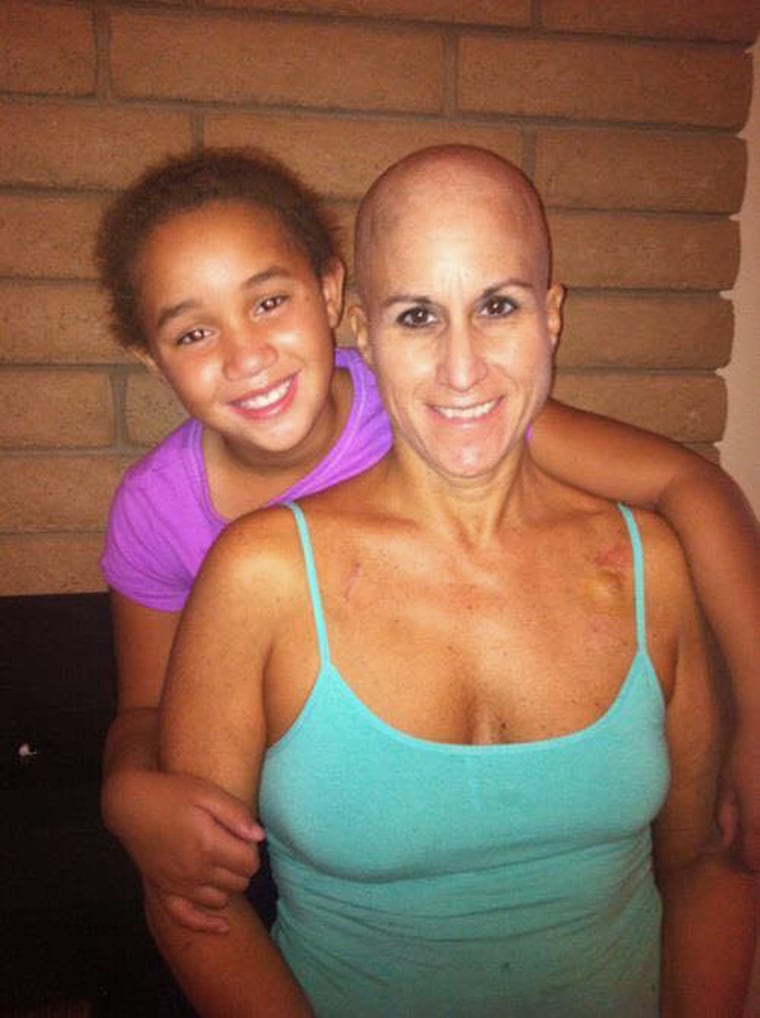Women with an aggressive and deadly form of breast cancer may live longer if they’re treated with a drug that targets breast cancer cells specifically, according to the results of a new clinical trial.
The drug, called ribociclib, was given alongside another type of cancer treatment: hormone therapy. In the study, women who received both treatments were more likely to be alive three and a half years after their diagnosis than women who only received hormone therapy. (Novartis, who makes ribociclib, funded the trial.)
The treatment is aimed at women with an advanced form of the most common type of breast cancer: hormone-receptor positive/HER2 negative cancer.
What made the trial unique is that it was focused on younger women who haven’t gone through menopause, lead study author Dr. Sara Hurvitz, an oncologist at UCLA Jonsson Comprehensive Cancer Center, said in a statement.
“This is an important group to study, since advanced breast cancer is the leading cause of cancer death in women 20 to 59, and the vast majority of breast cancer is hormone-receptor positive.”
In the study, researchers at MD Anderson Cancer Center and UCLA Jonsson Comprehensive Cancer Center compared the survival of 672 patients with this type of breast cancer. The women were premenopausal when the study began, and had cancer that had metastasized, or spread to other parts of the body.
All of the women were given hormone therapy, which works to reduce the amount of estrogen in the body that fuels cancer cells. But some women were also given ribociclib in a daily pill, which works by targeting specific cancer cells. Ribociclib has been previously shown to increase the odds of progression-free survival by 10 months post-diagnosis. (Progression-free means that the cancer was not growing or spreading.)
The new study — which will be published in the New England Journal of Medicine and will also be presented this weekend at the annual meeting of the American Society of Clinical Oncology in Chicago — is significant because it found that the combination of ribociclib and hormone therapy increased the chances of a patient living post-diagnosis for three and a half years.
Indeed, at that time point, 70 percent of the patients who received the combination therapy were alive, compared with 46 percent of patients who received hormone therapy alone.
“It was very exciting that women could live longer with their disease controlled,” Hurvitz told NBC News. “But what we’re presenting this weekend is a key secondary endpoint which is: They are living longer, period.”
Dr. Kevin Kalinsky, an assistant professor of medicine at NewYork-Presbyterian Hospital/Columbia University Irving Medical Center who was not involved in the new study, agreed that the new findings are important. “These drugs have been a game-changer,” he said.
“Achieving an overall survival advantage is quite a high bar for patients with hormone-receptor positive/HER2 negative breast cancer, so the fact that this was achieved with patients who were newly diagnosed [at later stages of disease] and premenopausal, is really quite impressive,” Kalinsky told NBC News.
Increasing survival for younger women
Although breast cancer risk rises with age, women in the study were all relatively young, under age 59. Many had young children, like Bernadette Martinho-Brewer, 53, of Tulare, CA.
Martinho-Brewer was 45 when she was diagnosed with aggressive, invasive breast cancer. Her daughter was only eight years old at the time. “I knew I had to stay strong for my daughter,” she said. “I knew I had to be around for her.”
She went through surgery, chemotherapy and radiation, but her cancer spread to her liver. It was then she enrolled in the clinical trial testing hormone therapy plus ribociclib. Two and a half years later, Martinho-Brewer said the lesion on her liver has disappeared, and her tumor has shrunk.
Patients in the trial who received ribociclib did not experience the kind of severe side effects associated with chemotherapy or radiation. The drug does have side effects, however; the primary one is that it can lower white blood cell count. But doctors say that this does not translate into an increased risk for infections or other problems that would be noticeable to patients.

Patients stay on the regimen for as long as it’s working well, according to Kalisnky.
Ribociclib is part of a class of drugs called CDK4/6 inhibitors. There are three such drugs that are FDA-approved: ribociclib, palbociclib and abemaciclib.
“This really confirms the value of this new class of drugs, which have transformed the way we treat hormone-receptor positive metastatic breast cancer,” Dr. Harold Burstein, a breast oncologist at Dana-Farber Cancer Institute who not involved in the new study, told NBC News.
The combination therapy is not right for all breast cancer patients, but a growing number of oncologists are turning to this kind of treatment as their first line of attack for certain kinds of breast cancer.

“There had been a time and place where we used to give chemotherapy up front to these patients,” said Kalinsky. “But we’re trying to move away from doing that. We’re trying to delay when we need to initiate chemotherapy.”
Breast cancer is the second deadliest cancer among women in the U.S., according to the American Cancer Society. An estimated 268,600 cases of invasive breast cancer will be diagnosed in 2019, and more than 40,000 women are expected to die from the disease this year.

